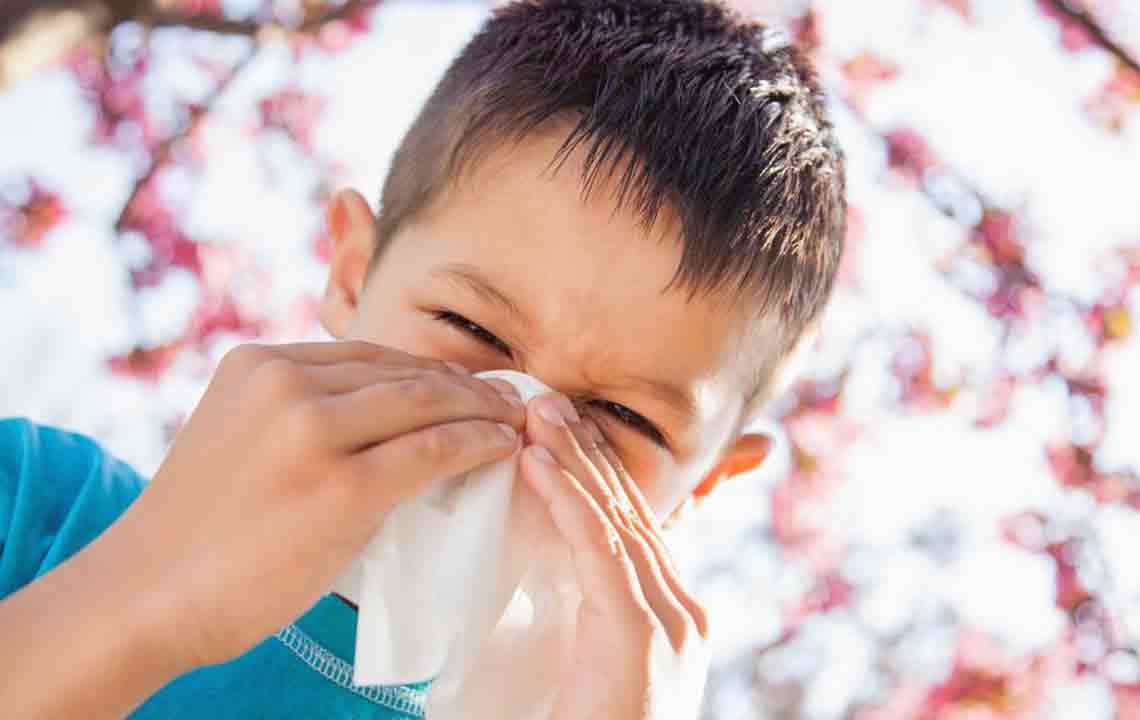How to Differentiate Allergic Reactions from Other Health Conditions: A Comprehensive Guide
Understanding whether symptoms like sneezing, itchy eyes, or skin rashes are allergies or related to other health issues is crucial. This comprehensive guide helps identify allergy signs early, differentiates them from infections or intolerances, and highlights when to seek professional help. Recognizing these signs ensures timely, effective treatment, reducing discomfort and preventing complications. By learning to distinguish symptoms accurately, individuals can manage allergies better and improve overall health, especially in a society where over half of the population is affected by environmental or food sensitivities.

How to Differentiate Allergic Reactions from Other Common Health Issues
Understanding whether your symptoms stem from allergies or other health concerns can be complex. This detailed guide provides valuable insights into identifying allergy signs to facilitate timely treatment and proper management.
Accurately distinguishing allergies from other illnesses is essential for effective health management. Many allergy symptoms mimic those of infections or other underlying conditions, which can complicate diagnosis. If misinterpreted, it might lead to unnecessary treatments or prolonged discomfort. Since a significant portion of the population, over 50% of Americans, are sensitive or allergic to various environmental triggers or foods, knowing the key differences becomes critical for maintaining optimal health.
Seasonal allergens like pollen and mold often produce symptoms similar to those of colds, making it challenging to differentiate between viral infections and allergies. Many individuals are cautious about ingredients in skincare or household products to avoid allergen exposure, which can trigger skin reactions like hives. According to the American Academy of Allergy Asthma and Immunology, more than half of the U.S. population reacts to at least one allergen, whether food-based or environmental. Recognizing these commonalities helps in making better health decisions.
Understanding the early signs of allergies can significantly improve your quality of life. Here are key tips to help you identify allergy symptoms quickly and accurately:
Evaluate Your Symptoms Carefully
Accurate diagnosis begins with a detailed assessment of your symptoms. Keep track of when they occur, their severity, and any possible triggers to help your healthcare provider determine if allergies are the cause or if another health issue is at play.
For instance, allergic rhinitis affects nearly 30% of adults, and proper treatment can resolve more than 85% of allergy-related symptoms. If you experience fever, body aches, or thick colored mucus, you’re likely dealing with a cold or viral infection rather than allergies. However, symptoms like itchy or watery eyes, frequent sneezing, nasal congestion, and clear mucus are characteristic of allergies, warranting specific allergy medications or interventions.
Timing and Seasonal Patterns
Pay attention to how long your symptoms last and whether they worsen during certain times of the year. Allergic symptoms that persist for more than two weeks or are exacerbated during high pollen seasons are strong indicators of seasonal allergies. Conversely, symptoms that occur year-round may be due to indoor allergens such as pet dander, dust mites, or mold.
Seasonal peaks in pollen count can usually be correlated with allergy flare-ups, guiding you on when to seek preventive measures or medication. Persistent symptoms outside of peak seasons suggest indoor allergen exposure, prompting modifications in home hygiene or allergy treatments.
Involvement of Multiple Body Systems
While food intolerances primarily cause issues within the gastrointestinal system, allergic reactions often involve multiple body systems simultaneously. Skin reactions like hives, respiratory symptoms like coughing or wheezing, and digestive disturbances can all occur as part of an allergic response. If you notice skin rashes, breathing difficulties, and stomach issues together, an allergy is probably responsible rather than a simple intolerance or an unrelated illness.
This multisystem involvement is a key feature distinguishing allergies from other health problems, emphasizing the need for comprehensive evaluation and targeted treatment.
Nervous System and General Symptoms
Not all symptoms linked with allergies are overtly allergic in origin. Headaches, fatigue, concentration difficulties, and general malaise might be related to systemic or neurological factors. If these symptoms are localized or isolated to the nervous system, consulting a healthcare professional is crucial to rule out neurological disorders or other systemic illnesses.
Seek Professional Medical Advice
If you're uncertain about the cause of your symptoms, visiting an allergist or healthcare provider is highly recommended. Allergy testing, including skin prick tests or blood tests, can confirm sensitivities and help differentiate allergies from other health conditions. An accurate diagnosis ensures effective, personalized treatment plans that improve your health and quality of life.





